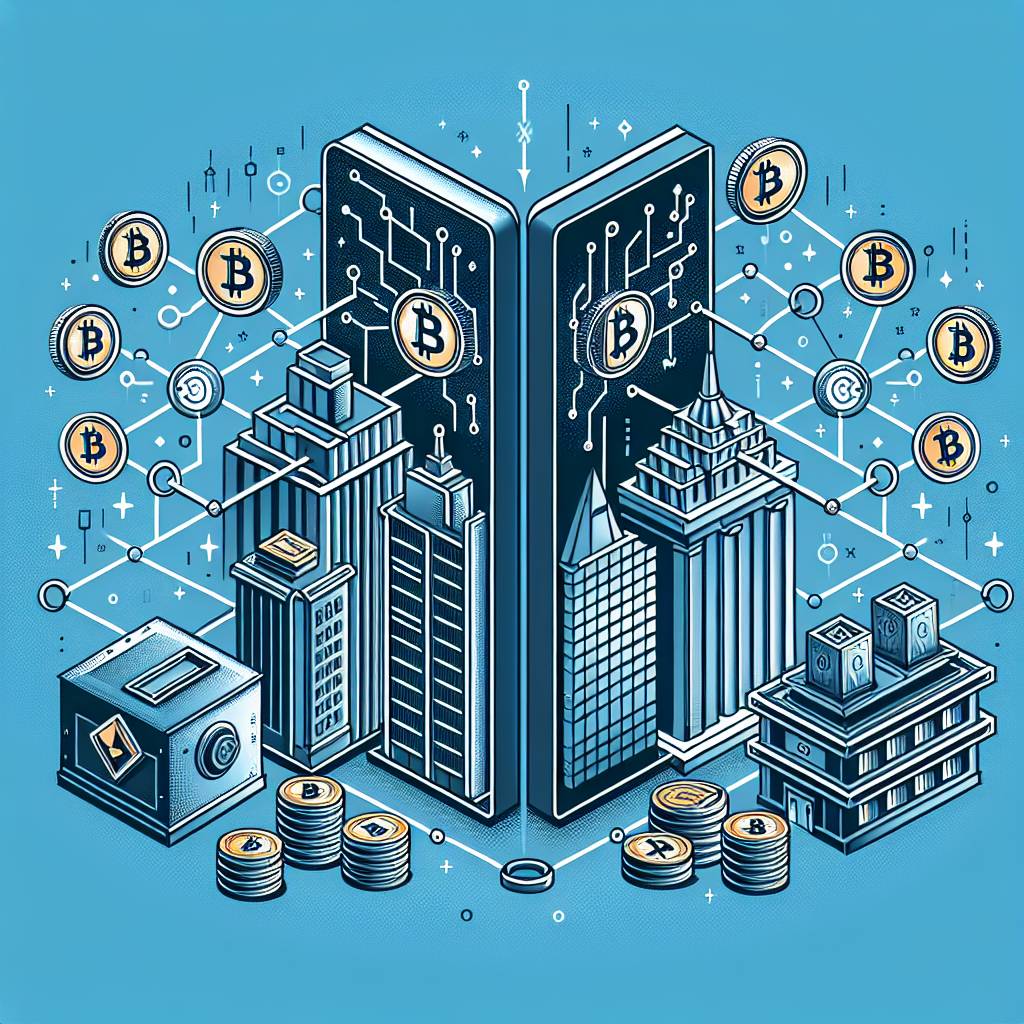How does using a decentralized exchange differ from using a centralized exchange in the world of cryptocurrency?
Can you explain the differences between using a decentralized exchange and a centralized exchange in the world of cryptocurrency? What are the advantages and disadvantages of each?

3 answers
- When using a decentralized exchange, you have full control over your funds and transactions. The exchange operates on a peer-to-peer network, where trades are executed directly between users without the need for intermediaries. This ensures that your funds are not held by a central authority, reducing the risk of hacking or theft. However, decentralized exchanges may have lower liquidity and slower transaction speeds compared to centralized exchanges. On the other hand, centralized exchanges are operated by a single entity and act as intermediaries between buyers and sellers. They offer higher liquidity and faster transaction speeds, making it easier to execute trades. However, you need to trust the exchange with your funds, as they are stored on the exchange's platform. Centralized exchanges are also more prone to hacking and regulatory risks. In summary, decentralized exchanges provide more control and security over your funds, but may have lower liquidity. Centralized exchanges offer higher liquidity and faster transactions, but come with the risk of trusting a third party with your funds.
 Dec 29, 2021 · 3 years ago
Dec 29, 2021 · 3 years ago - Using a decentralized exchange means that you are participating in a peer-to-peer network where trades are conducted directly between users. This eliminates the need for a central authority to facilitate transactions. On the other hand, a centralized exchange is operated by a single entity that acts as an intermediary between buyers and sellers. They hold users' funds and execute trades on their behalf. Decentralized exchanges offer advantages such as increased privacy, as they do not require users to provide personal information or go through a KYC process. They also provide more control over funds, as users have their private keys. However, decentralized exchanges may have lower liquidity and limited trading pairs compared to centralized exchanges. Centralized exchanges, on the other hand, offer higher liquidity and a wider range of trading pairs. They also provide additional services such as margin trading and lending. However, users need to trust the exchange with their funds, and there is always a risk of hacking or regulatory issues. Overall, the choice between a decentralized and centralized exchange depends on your priorities. If privacy and control over funds are important to you, a decentralized exchange may be the better option. If liquidity and a wider range of services are your priority, a centralized exchange may be more suitable.
 Dec 29, 2021 · 3 years ago
Dec 29, 2021 · 3 years ago - Using a decentralized exchange, like BYDFi, offers several advantages over centralized exchanges. Firstly, decentralized exchanges provide users with full control over their funds, as trades are executed directly between users without the need for a central authority. This eliminates the risk of funds being frozen or confiscated by a central entity. Secondly, decentralized exchanges prioritize privacy and security. Users do not need to provide personal information or go through a KYC process, ensuring their anonymity. Additionally, decentralized exchanges are less vulnerable to hacking attacks, as there is no central point of failure. However, decentralized exchanges may have lower liquidity and slower transaction speeds compared to centralized exchanges. This can result in higher slippage and longer wait times for trade execution. In conclusion, using a decentralized exchange offers greater control, privacy, and security over your funds. However, it is important to consider the trade-offs in terms of liquidity and transaction speed.
 Dec 29, 2021 · 3 years ago
Dec 29, 2021 · 3 years ago
Related Tags
Hot Questions
- 93
How does cryptocurrency affect my tax return?
- 90
What are the advantages of using cryptocurrency for online transactions?
- 84
Are there any special tax rules for crypto investors?
- 84
What are the best practices for reporting cryptocurrency on my taxes?
- 76
What are the best digital currencies to invest in right now?
- 55
What are the tax implications of using cryptocurrency?
- 47
How can I protect my digital assets from hackers?
- 28
How can I minimize my tax liability when dealing with cryptocurrencies?
